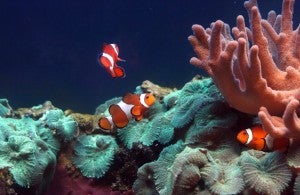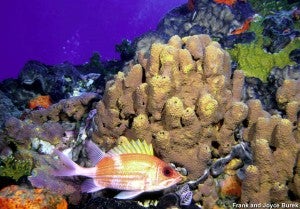Environmental Defense Fund was awarded California’s highest environmental honor by Governor Jerry Brown at a ceremony last night for our creation of the California Fisheries Fund (CFF). The CFF, the first fisheries-specific loan fund in California and most comprehensive in the United States, provides capital to fishermen, fishing businesses and communities who are dedicated to safeguarding the environment, their fishery’s profitability and the greater oceans economy.
The award ceremony was hosted by California EPA in Sacramento, California. During his remarks, California EPA secretary Matthew Rodriguez said that the “entities that we’re recognizing tonight are really showing us the way forward. Their unique approach shows how, given a challenge, California businesses, nonprofit organizations and businesses can really rise to the occasion.”
There can be many business challenges for fishermen to transition to more environmentally-friendly fishing practices but with the California Fisheries Fund, we’re removing roadblocks and helping fishermen continue on the path to fishing sustainably and profitably.
So far, we have awarded fourteen loans totaling nearly $1.7 million to eleven borrowers including fishermen, fishing businesses and communities. Most recently, we closed a loan to Steve Fitz, a Half Moon Bay fisherman who attended the award ceremony with us.. Steve’s CFF loan allowed him to buy his boat from his uncle and carry on his family’s sustainable fishing legacy—operating the only commercial fishing operation in the nation that uses Scottish Seine gear. The most eco-friendly way to catch flatfish like Petrale sole and sand dabs, Scottish Seine gear consists of lines which gently guide fish into the path of light-weight nets. Unlike some other types of fishing techniques, Scottish Seine doesn’t use heavy gear that drags along the ocean floor. Read More












